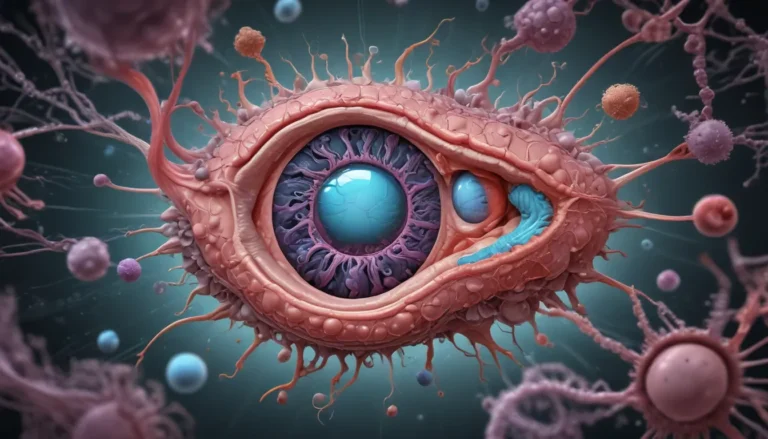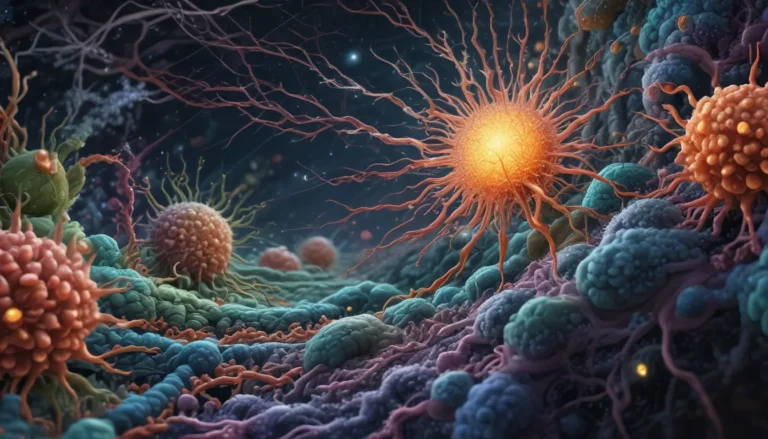A Note About Images: The images used in our articles are for illustration purposes only and may not exactly match the content. They are meant to engage readers, but the text should be relied upon for accurate information.
Population genetics is a captivating realm that intertwines genetics and statistics to illuminate the genetic landscape of populations and their evolution over time. It delves into the origins, dissemination, and transformation of genetic variation within and among populations. While genetics basics like DNA and heredity are familiar to many, population genetics offers a panoramic view, probing the patterns and mechanisms that mold the genetic diversity within species.
Unveiling the Dynamics of Genetic Diversity
Genetic variation, migration, and natural selection are pivotal elements that sculpt the diversity and development of populations. They furnish invaluable insights into human history, bolster conservation endeavors, and enrich evolutionary biology. Mutations, inbreeding, and non-coding DNA also wield significant influence in the realm of population genetics. The advent of cutting-edge technology has revolutionized research in this intricate and ever-evolving domain.
The Marvel of Genetic Variation
The bedrock of population genetics lies in genetic variation, where individuals within a population inherit diverse genetic traits through mechanisms like mutation and recombination. This diversity begets the myriad distinctions observed in species, showcasing the tapestry of biological adaptations.
Navigating the Spectrum of Genetic Drift
Genetic drift denotes the stochastic alterations in gene frequencies within a population over time. This phenomenon exerts a profound influence on population evolution, particularly in smaller populations where chance occurrences hold amplified sway.
Embarking on the Journey of Migration
The movement of individuals between populations, known as migration, exerts a pivotal role in shaping genetic diversity. It ushers in novel genetic material and propels the dissemination of advantageous traits, enriching the genetic landscape.
Unveiling the Founder Effect’s Impact
When a small cohort establishes a new population, the genetic pool may not mirror the diversity of the parent population. This disparity, termed the founder effect, can culminate in genetic bottlenecks and diminished genetic variation.
Unraveling the Enigma of Natural Selection
Natural selection acts upon the genetic variation within a population, endorsing traits that bolster survival and reproduction. This seamless process catalyzes population adaptation to their habitats over time.
Embracing the Harmony of Gene Flow
Gene flow elucidates the interplay of genes between populations, countervailing genetic divergence by ushering in fresh genetic material and bridging disparities across populations.
Illuminating Human History Through Genetics
Explorations in population genetics have yielded profound insights into human history, unraveling migration patterns and ancient population movements. DNA scrutiny has unveiled riveting details about our forebears and their genetic affinities.
Pioneering the Path of Mutation
Mutations emerge as the wellspring of genetic variation, arising spontaneously or through external inducers like radiation or chemicals. They furnish the groundwork that fuels the evolution process.
Safeguarding Genetic Health Through Diversity
Inbreeding, the mating among closely related individuals, can lead to reduced fitness and the manifestation of deleterious recessive traits. This underscores the significance of genetic diversity in populations.
Nurturing Swift Genetic Adaptations
Under certain circumstances, populations can swiftly undergo genetic adaptations through processes like selective sweeps. Here, beneficial genetic variants disseminate rapidly across populations owing to the forces of natural selection.
Championing Conservation via Population Genetics
Understanding the genetic makeup and diversity of imperiled populations is imperative for conservation initiatives. Techniques in population genetics furnish insights into relatedness, genetic vitality, and strategies for preserving genetic diversity.
Unveiling the Roles of Non-Coding DNA
Non-coding DNA, often termed “junk DNA,” may not encode proteins directly, yet it wields regulatory clout, influencing gene expression and phenotypic attributes within populations.
Leading the Frontiers of Technological Advancements
The advent of high-throughput sequencing technologies, such as next-generation sequencing, has revolutionized the realm of population genetics. These innovations empower the analysis of copious genetic data, bestowing unprecedented revelations into population dynamics.
Charting a Bright Future for Population Genetics
Population genetics vistas unveil the enigmatic genetic tapestry within and among populations. By scrutinizing patterns of genetic diversity, scientists glean insights into myriad phenomena, encompassing evolution, human migration, disease susceptibility, and conservation efforts.
In this discourse, we navigate through 13 captivating facts spotlighting the intricacies of population genetics. From the repercussions of natural selection on genetic variation to the sway of genetic drift on petite populations, these revelations unfurl the intricate mechanisms underpinning population genetics.
Through unraveling these facts, we not only enrich our genetic knowledge but also foster a deeper appreciation for the interwoven facets of biology, history, and human society. With technological advancements and burgeoning research, we anticipate a realm of thrilling discoveries and applications in the domain of population genetics.
FAQs: Navigating the Sea of Curiosity
-
What is population genetics?
Population genetics is a genetic discipline that investigates the genetic composition and transitions within populations, delineating how genes are disseminated and inherited across generations. -
Why is population genetics important?
Population genetics aids in deciphering the genetic underpinnings of ailments, predicting evolutionary transformations, and crafting strategies for conservation and breeding. It also illuminates human migration patterns and ancestral connections. -
What factors shape population genetics?
Natural selection, genetic drift, gene flow, mutation, and genetic recombination are quintessential agents that mold population genetics, profoundly influencing genetic variation and evolution. -
How does natural selection influence population genetics?
Natural selection operates on genetic variations, fortifying traits that bolster survival and reproduction. Over time, this process perpetuates advantageous genes within a population. -
What is genetic drift?
Genetic drift signifies the serendipitous shifts in gene frequencies within a population over time. Its impact is accentuated in diminutive populations and may erode genetic diversity. -
What is gene flow?
Gene flow denotes gene exchange between distinct populations via migration and interbreeding. It injects novel genetic variations and counteracts the effects of genetic drift. -
How does mutation contribute to population genetics?
Mutations serve as the wellspring for novel genetic variations, laying the groundwork for evolution by instigating genetic modifications acted upon by natural selection or genetic drift. -
Can population genetics aid in understanding human migration?
Indeed, population genetics unveils human migration patterns by evaluating the dispersion and diversity of specific genetic markers, effectively mapping the movements of populations over time. -
How is population genetics relevant in disease research?
By delving into population genetics, researchers can pinpoint genetic susceptibility to diseases and unravel how diverse populations respond to treatments. This knowledge fuels personalized medicine and bespoke therapeutic developments. -
How can population genetics bolster conservation initiatives?
Population genetics is instrumental in assessing the genetic vitality and diversity of endangered species. It informs the formulation of effective conservation tactics and identifies populations most imperiled.
Engage in a journey rife with captivating revelations about population genetics as we uncover the core tenets of Hardy-Weinberg equilibrium, a cardinal principle shedding luminosity on genetic variation within populations. Traverse the realm of molecular markers, potent tools that enable researchers to trail genetic diversity and evolutionary trajectories. Submerge yourself in the realm of allele frequency, unraveling its pivotal role in sculpting the genetic mosaic of populations. Each facet proffers a unique viewpoint on the intricate tapestry of population genetics, promising to enrich your discernment of this riveting domain.
Embracing Reliability and Authenticity
Our mission revolves around furnishing trustworthy and engrossing content that resonates within the core of our ethos. Each nugget of knowledge on our platform is contributed by real users like you, embodying a diversity of perspectives and insights. Our dedicated editors rigorously vet each submission, assuring the zenith of precision and reliability in the facts we disseminate. Traverse with confidence alongside us, delving into a repository of facts that are not just intriguing but firmly grounded in credibility. Trust in our unswerving commitment to quality and authenticity as we embark on a journey of exploration and learning together.






